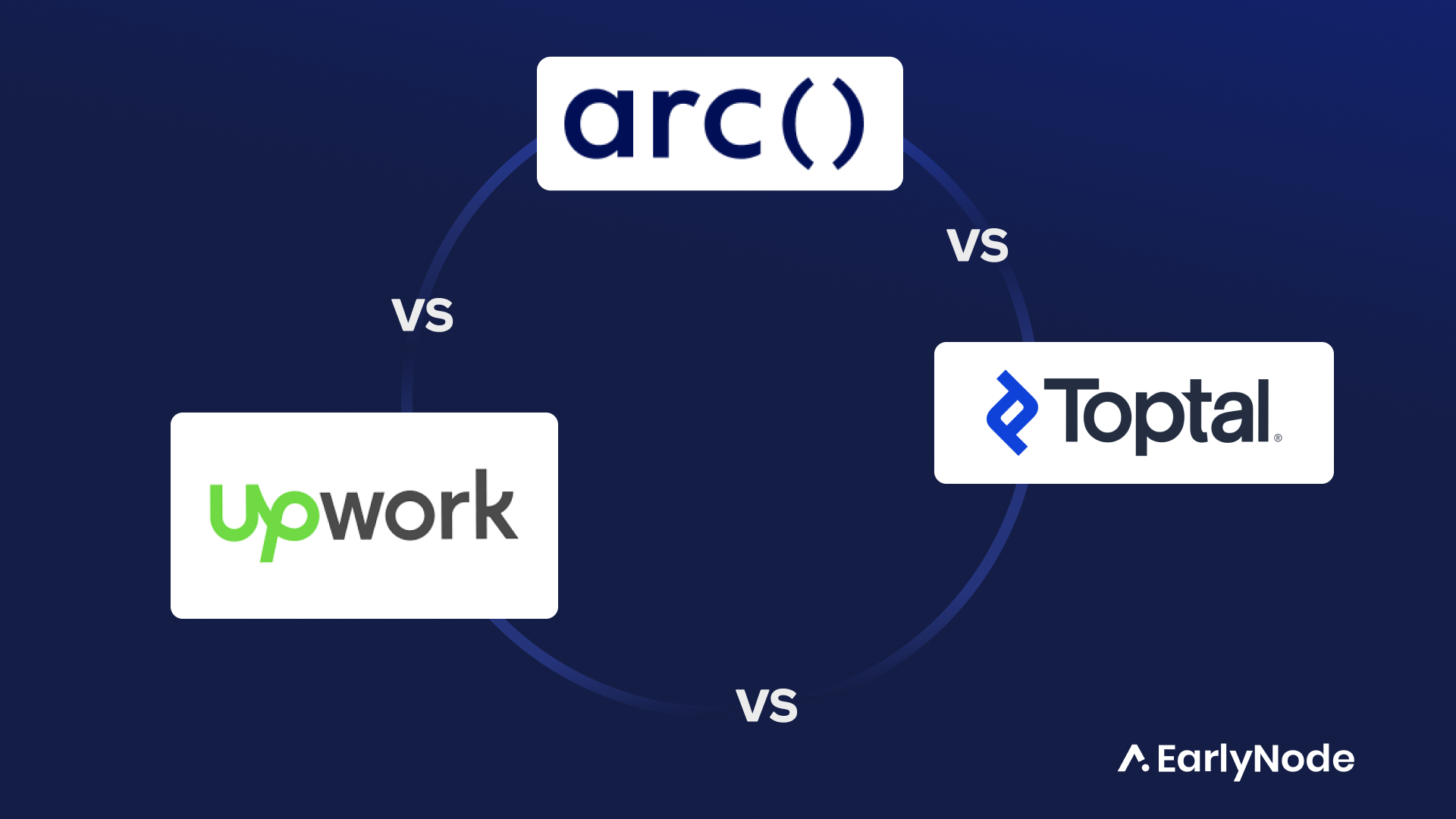28 Product Marketing Management (PMM) Interview Questions to Ask Candidates

Looking for the best Product Marketing Manager (PMM)? It’s about finding someone who can bridge the gap between the product and its users. Asking the right questions in the interview can show if they really get product marketing, can plan ahead, work well with your team, and get things done.
We’ve put together some essential questions to help you uncover these qualities. Whether you’re new to hiring or the world of product marketing, these questions are straightforward and will guide anyone to pick the right person for the job.
What To Look For When Hiring Product Marketing Managers?
When interviewing candidates for a SaaS product marketing manager position, generally look for a range of technical knowledge, soft skills, and cultural fit indicators. Here are 10 attributes to assess them on:
- Product & market knowledge: The candidate should demonstrate a clear understanding of the SaaS product, its features, benefits, the target audience, and the market landscape. This includes competitors, include, and potential opportunities.
- Strategic thinking: How well can the candidate think long-term? Can they craft a compelling go-to-market (GTM) strategy, position products effectively, and predict potential market shifts?
- Communication skills: A good Product Marketing is an excellent communicator, both written and verbal. The candidate should be able to express thoughts clearly and tailor messaging for different audiences.
- Analytical skills: Can the candidate analyze market data, customer feedback, and campaign results to make informed decisions? They should be good at using tools like Google Analytics, CRM platforms, and other analytical tools to assess performance.
- Cross-functional collaboration: Product marketing managers often work with teams across the organization – from product development to sales to customer support. The candidate should be able to collaborate and influence without direct authority.
- Customer-centricity: How well does the candidate understand customer needs, pain points, and jobs-to-be-done? They should be able to place the user at the center of their strategies and campaigns
- Creativity and innovation: The ability to come up with new ideas for campaigns, strategies, or even product enhancements can set a candidate apart. The SaaS industry is fast-paced, so finding an innovative person is a plus.
- Adaptability: The candidate should be comfortable with change. Whether it’s a market shift, a change in company strategy, or new product features, they need to quickly adapt and realign their marketing strategies as well.
- Cultural fit: Does the candidate’s values, work style, and aspirations align with the company’s culture and values? Hiring someone who isn’t a cultural fit can affect the team’s morale. There would almost always be issues with communication and productivity.
- Results and achievements: Past performance can be a good indicator of future success. Does the applicant have a track record of successful product launches, campaigns, or other relevant achievements? Be on the lookout for quantifiable results that highlight their expertise.
Aside from these, gauge to see if they’re enthusiastic about their role and your company and product vision. Combine skills, experience, and cultural fit to determine the right candidate for the job.
On that note, we compiled 28 interview questions to ask shortlisted candidates. Some are actual questions that have been asked in real-life interviews.
For each question, we explain the reason behind the question to help you get valuable insights into the candidate’s mindset, experience, and approach to SaaS product marketing. We also provided a dummy response to know what kind of answers to expect from a candidate:
1. What interests you most about product marketing? /Why did you choose a career in product marketing?
You’re basically asking, “Why do you even care about product marketing?” You want to see if they’re genuinely excited about the field or just looking for a paycheck. Their passion (or lack of it) will show in their work.
Typical Answer: “What interests me the most about product marketing is the ability to bridge the gap between product development and the market. I love crafting compelling stories around a product, identifying its unique selling proposition, and making sure that it resonates with the target audience. It’s about understanding the market and aligning the product to fulfill its needs.”
Attributes/Criteria:
Product & Market Knowledge; Communication Skills; Customer-Centricity; Creativity and Innovation
2. What is your understanding of the product marketer’s role?
To evaluate the candidate’s understanding of the scope and responsibilities of the role. In other words, “Do you really get what this job is about?” We want to make sure they’re not walking into the role with a bunch of misconceptions. They need to know what they’re stepping into.
Typical Answer: “A product marketer has a varied job. It involves understanding the product inside out, researching and segmenting the market, defining positioning and messaging, crafting go-to-market strategies, and closely working with cross-functional teams like Product, Sales, and Customer Success. Their goal is to make sure the product finds its right place in the market and resonates with its intended audience.”
Attributes/Criteria:
Product & Market Knowledge; Communication Skills;
3. Can you tell us about a time you’ve acquired a new skill and put it into practice?
This question assesses how adaptable the candidate is, and if they are continuous learners. It’s a sneaky way of asking, “When the going gets tough, can you step up?” You want people who aren’t afraid of new challenges and can learn on the fly.
Typical Answer: “Certainly! When we began to see an increase in demand for video content in marketing, I took the initiative to learn video editing. Over a couple of months, I used online platforms to master the basics of video editing tools. Soon after, I was able to produce our first product explainer video, which received positive feedback and increased engagement on our social channels.”
Attributes/Criteria:
Adaptability; Creativity and Innovation; Communication Skills;
4. How have you managed product launches in the past?
Here, you want an idea of the candidate’s real-world experience and approach to handling a product launch (if they have one).
Typical Answer: “In my previous role, I managed the launch of our flagship SaaS product. I collaborated with the product team to understand its features and benefits thoroughly. I then worked on positioning, coordinated with sales for their pitches, and worked with customer support for potential FAQs. The launch was executed in phases, starting with a teaser campaign, then a beta release to a select audience, and finally, a full-scale launch. Post-launch, I analyzed the results to gauge success and areas of improvement.”
Attributes/Criteria:
Product & Market Knowledge; Collaboration; Strategic Thinking; Analytical Skills
5. Can you run us through your product launch process?
You want to see if they have a strategic game plan for launching a product, from planning to execution.
Typical Answer: “Certainly. My product launch process typically starts with a deep dive into understanding the product and market research. This involves:
- Product feature and benefit assessment.
- Competitor analysis and market positioning.
- Defining clear objectives and KPIs for the launch.
- Crafting messaging and content strategy.
- Collaborating with cross-functional teams for a coordinated launch.
- Phased execution: soft launch, feedback gathering, and full launch.
- Continuous monitoring and adjusting based on real-time data.
- Post-launch analysis to determine successes and areas of improvement.”
Attributes/Criteria:
Product Market Knowledge; Strategic Thinking; Communication Skills; Collaboration
6. What would your approach to improving retention rates and/or reducing customer churn be?
This gauges the candidate’s understanding of customer retention strategies and whether they have solid ideas to tackle challenges with churn.
Typical Answer: “My approach would be:
- Analyze churn data to identify why customers leave.
- Engage with customers using feedback sessions or surveys.
- Work with the product team to address any product problems.
- Improve customer onboarding to help users realize value quickly.
- Offer loyalty programs or incentives for long-term commitments.
- Keep customers informed about product improvements and how it benefits them.”
Attributes/Criteria:
Customer-Centricity; Analytical Skills; Communication Skills
7. How would you measure the success of Product Marketing?
Essentially, this is asking, “You’ve done the work, but how do you know if it’s any good?” We’re fishing for their understanding of key metrics and how they use data to validate their efforts.
Typical Answer: “Success in product marketing is a blend of qualitative and quantitative metrics. I’d look at direct KPIs like increase in sales, user engagement, and product adoption. But I’d also look at customer feedback, brand perception, and virality. Tools like Google Analytics, CRM platforms, and even NPS scores can provide valuable insights.”
Attributes/Criteria:
Analytical Skills; Product & Market Knowledge
8. Tell Me What You Think About the Messaging on Our Website
You want to see if they’ve proactively done their research, can provide constructive feedback, and understand good branding.
Typical Answer: “I’ve spent some time on your website, and overall, it’s visually appealing. However, the value proposition could be clearer on the homepage. While the product features are well-highlighted, weaving in more customer testimonials or success stories might help in building trust.”
Attributes/Criteria:
Product & Market Knowledge; Communication Skills; Creativity and Innovation; Analytical Skills
9. What do you know about our company’s target audience?
This is your way of asking, “Have you done your homework on us?” A good candidate will put in the effort to understand who you’re selling to.
Typical Answer: “From my research, your primary target audience seems to be mid-sized businesses in the tech sector, particularly those looking for scalable SaaS solutions. Your content and product features also suggest a focus on decision-makers and IT managers looking for efficient and cost-effective tools.”
Attributes/Criteria:
Product & Market Knowledge; Customer-Centricity; Research Skills
10. What’s the project you’re most proud of and why?
You want a glimpse of their best work and understand the passion behind it.
Typical Answer: “At my last job, I spearheaded the rebranding campaign for a major product update. It wasn’t just about flashy designs; we revamped our messaging, targeted a new market segment, and even got featured in a major tech magazine. The best part? A 40% increase in sign-ups in the following quarter.”
Attributes/Criteria:
Results and Achievements; Creativity and Innovation; Communication Skills
11. What is a go-to-market (GTM) strategy and how do you execute it?
Check to see if they know how to introduce a new product to the market. Asking them to lay out their plan will let you see if they can walk the talk.
Typical Answer: “A go-to-market strategy is all about how you introduce a product to the market. It covers targeting, positioning, pricing, and sales strategy. To execute, I start with deep market research, define the unique selling proposition, decide on the channels we’ll use, collaborate with sales and support teams, and continuously measure and tweak as we go.”
Attributes/Criteria:
Strategic Thinking; Collaboration; Communication Skills
12. How do you think digital marketing will evolve in the future?
This one’s a curveball. The question peeks into their forward-thinking abilities and understanding of industry trends.
Typical Answer: “Digital marketing is ever-evolving. I believe we’ll see a rise in personalized marketing, more AR and VR experiences, and a stronger focus on privacy with tighter regulations. Video content will continue to dominate, and we might see newer social platforms challenging the giants.”
Attributes/Criteria:
Research; Product & Market Knowledge; Adaptability
13. What’s the last marketing campaign that impressed you and why?
You’re trying to find out their taste in marketing, their awareness of current trends, and what they value in a campaign.
Typical Answer: “I was really taken by [Brand Name]’s campaign. The storytelling was impeccable, combining emotional appeal with social relevance. It was bold, took a stance, and reinforced [Brand Name]’s brand image as more than just a [Industry Name] company.”
Attributes/Criteria:
Creativity and Innovation; Strategic Thinking; Analytical Skills
14. Can you tell us about a time you’ve had to pivot or rethink a strategy for a product you have closely worked on?
It’s a chance to see their adaptability and problem-solving skills in action when things go sideways.
Typical Answer: “Certainly! We had launched a new feature which we initially marketed to small businesses. However, the feedback was lukewarm. After analyzing usage patterns, we realized larger enterprises were showing more interest. So, we pivoted our strategy, repositioned the feature, and targeted it towards larger corporations, resulting in better adoption.”
Attributes/Criteria:
Adaptability; Analytical Skills; Results and Achievements; Strategic Thinking
15. Can you tell us about a good product out there that you think is poorly marketed? And what would you do differently, given the chance?
Ask this question if you want to know whether they’ve got that critical eye for golden opportunities for improvement.
Typical Answer: “I think Product Y is fantastic in terms of functionality, but its marketing doesn’t do it justice. It’s mostly promoted for its advanced features, but the simplicity and user experience, which are its real strengths, are understated. If I were in charge, I’d shift the narrative to highlight its user-friendliness and how it solves everyday problems.”
Attributes/Criteria:
Product & Market Knowledge; Creativity and Innovation; Strategic Thinking
16. Let’s pretend we’re increasing the price of product X by 10%. How would you communicate this to customers?
Have they got finesse in handling touchy topics? This question tests how well they handle situations and understand customers’ feelings.
Typical Answer: “I’d be transparent and upfront. I’d communicate the reasons for the price increase, emphasizing the added value or improvements made to the product. Offering a heads-up before the price change, maybe even giving loyal customers a grace period or a special offer, could also help soften the blow.”
Attributes/Criteria:
Communication Skills; Adaptability; Empathy and Understanding
17. Only 60% of our customers are using our online portal. What would you do to drive adoption for the remaining 40%?
Test them for their proactiveness in engaging and onboarding users.
Typical Answer: “First, I’d want to understand why the 40% aren’t using the portal. Is it awareness, usability, or perceived value? Based on that, strategies might include an onboarding tutorial, incentive programs for first-time users, or a feedback loop to continually improve the portal.”
Attributes/Criteria:
Customer-Centricity; Analytical Skills; Strategic Thinking; Communication Skills
18. You launch a new feature, and there is low adoption by your customers. What data would you evaluate, and how would you respond?
This will gauge their analytical skills and steps for finding a solution.
Typical Answer: “I’d dive into data like feature awareness, usage patterns, and customer feedback. Perhaps users don’t know about it, find it confusing, or just don’t see its value. Depending on the root cause, I’d revamp our communication strategy, enhance feature education, or even consider tweaks to the feature itself based on feedback.”
Attributes/Criteria:
Analytical Skills; Product & Market Knowledge; Customer-Centricity; Adaptability
19. Tell me about a time you explained something really difficult (technically and/or logically difficult). What was your approach, and how did it go?
Are they able to break down complex concepts or ideas into something a beginner can understand? This tests how well they can communicate your product for users to easily get it.
Typical Answer: “In my last role, I had to explain a complex algorithm change to our sales team. I used analogies and visual aids, creating a presentation that related the algorithm’s mechanics to a car engine. By the end, even the least tech-savvy members felt more confident about it. The key was to break it down step by step and use relatable terms.”
Attributes/Criteria:
Communication Skills; Empathy and Understanding; Product & Market Knowledge
20. What are the keys to building and maintaining strong relationships with sales reps?
Here, we’re asking if they know how to align well with the marketing and sales teams.
Typical Answer: “Having open communication, respecting each other, and having a shared goal is super important. Regular sync-up meetings, understanding their problems, and giving them the tools and resources they need really matter. Celebrating wins as a team keeps us closer.”
Attributes/Criteria:
Cross-functional Collaboration; Empathy and Understanding; Adaptability
21. How would you describe your approach to teamwork?
This will give you insight into whether they play well with others and value collaboration.
Typical Answer: “I believe in open communication, trust, and leveraging each team member’s strengths. For me, teamwork is about combining our individual skills to achieve a common goal, ensuring everyone feels valued and heard.”
Attributes/Criteria:
Collaboration; Empathy and Understanding; Commitment and Dedication
22. How do you help make sure the sales team is positioning a product correctly?
Essentially, you’re asking, “How do you ensure the sales team doesn’t mess up the product pitch?” This tests their leadership and cross-functional abilities.
Typical Answer: “I start with thorough training sessions, post-product launches, or updates. Creating cheat sheets, FAQs, and use case scenarios helps. I also seek feedback, run mock sales pitches, and, when possible, join actual sales meetings to offer real-time guidance.”
Attributes/Criteria:
Communication Skills; Product & Market Knowledge; Collaboration; Leadership Skills
23. Can you tell us about a time you went above and beyond at your last company?
This question looks for commitment and initiative.
Typical Answer: “When our lead designer fell sick right before a major campaign launch, I pulled an all-nighter to learn some basic design tools. Managed to create decent visuals to ensure the campaign went live on time. It was stressful but highly rewarding.”
Attributes/Criteria:
Adaptability; Commitment and Dedication; Problem-Solving; Creativity and Innovation
24. Tell me about a project you worked on that failed or didn’t meet expectations. what happened, and what did you learn?
This probes to find out whether they have a resilient mindset to learn from mistakes and can change direction if needed.
Typical Answer: “We launched a referral program that didn’t take off as expected. In hindsight, we didn’t market it aggressively enough and overlooked some user experience (UX) bottlenecks. It taught me the importance of continuous monitoring, gathering feedback, and being ready to iterate quickly.”
Attributes/Criteria:
Adaptability; Analytical Skills; Learning and Growth Mindset
25. Tell me about some experiences you’ve had working with the sales team that have gone well and others that haven’t gone so well.
This is you telling them, “Share the good, the bad, and the ugly.” It helps to understand their interpersonal relations, and ability to resolve conflicts and collaborate with others.
Typical Answer: “One great experience was co-hosting a workshop, blending sales pitches with marketing insights. It was collaborative and fun. On the flip side, there was an instance where sales felt a campaign was too ‘brand-centric’ and not ‘sales-driven’ enough. It took a few heated discussions before we found common ground, but it emphasized the importance of early alignment.”
Attributes/Criteria:
Communication Skills; Cross-functional Collaboration; Empathy and Understanding; Conflict Resolution
26. What Did Product Marketing Look Like Where You Previously Worked?
This is a sneaky way of saying, “Give us the lowdown on your previous gig.” You’ll understand their past environment, the scale of operations, and perhaps gaps in their experience.
Typical Answer: “At my previous company, product marketing was a bridge between the product and sales teams. We focused on GTM strategies, creating sales collateral, and crafting the product narrative. It was a fast-paced environment with frequent product updates, so agility and adaptability were key.”
Attributes/Criteria:
Product & Market Knowledge; Strategic Thinking; Cross-functional Collaboration; Adaptability
27. What’s your leadership style?
If they’re in the driver’s seat, how would they steer the ship? Since the role is a leadership role, you need to understand their management philosophy and how they motivate and guide their team.
Typical Answer: “I’m a servant leader. I believe in empowering my team, giving them the tools and resources they need, and being there for support rather than micromanaging. I focus on clear communication, setting expectations, and then trusting the team to deliver, stepping in only when guidance is needed.”
Attributes/Criteria:
Empathy and Understanding; Commitment and Dedication; Adaptability; Leadership Skills
28. What Are Some Ways You Build Relationships With Fellow Employees?
This is a cultural fit question. A good leader and team player will invest in building strong workplace relationships.
Typical Answer: “I believe in both formal and informal interactions. Regular one-on-ones, team lunches, and occasional coffee breaks with colleagues from different departments have always been my go-to. I also participate in team-building activities and workshops to foster a sense of unity and understanding.”
Attributes/Criteria:
Communication Skills; Empathy and Understanding; Collaboration; Adaptability
Other things to consider for a PMM interview
Review Portfolios
A Product Marketer’s portfolio could contain campaign summaries, launch plans, go-to-market strategies, or any other tangible evidence of their contributions and results.
It gives you a fair idea of the quality and creativity of the candidate’s work. When assessing the portfolio, check to see if the work is relevant to the position you’re hiring for. Some portfolios have a wide range of projects, while others go deep into a few. Both can be valuable, depending on what you want.
Have a cross-functional interview panel
Get people from Product, Sales, Marketing, and even Customer Support to take part in the interview process.
Different teams can evaluate the candidate from various perspectives, giving a well-rounded view of their fit and skills. It helps gauge how a candidate interacts with different departments. It’ll come in handy since Product Marketing is a cross-functional collaboration.
Each member of the panel should have a clear understanding of what they’re evaluating. After the interview, the panel should discuss and collate feedback to get an overview of the candidate’s fit.
Wrapping Up
As you gear up to find that stellar Product Marketing Manager to elevate your product game, remember that the right questions can unveil not just skill but passion, creativity, and fit. These 28 questions are your toolkit to dive deep into a candidate’s mindset, strategy, and hands-on experience. Hiring is as much an art as it is a science. Happy hiring!




